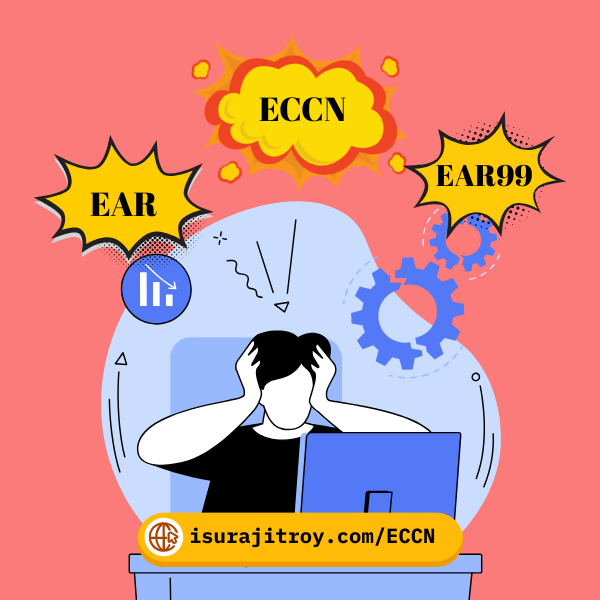
If you don’t think you can, you won’t be successful in your attempts. This occurs as a result of the need of adopting a positive mentality in order to accomplish any goal. If you want to be successful, you must have faith in your capacity to realize whatever objective you have set for yourself. Enhancing your health, achieving academic achievement, and starting a company are all examples of pursuits where having the right attitude is crucial. Lack of self-confidence will prevent you from reaching your objectives. If you want to be successful, you need to have faith in your abilities and trust that you can achieve your objectives.
What does it mean to believe in yourself? (A Definition)
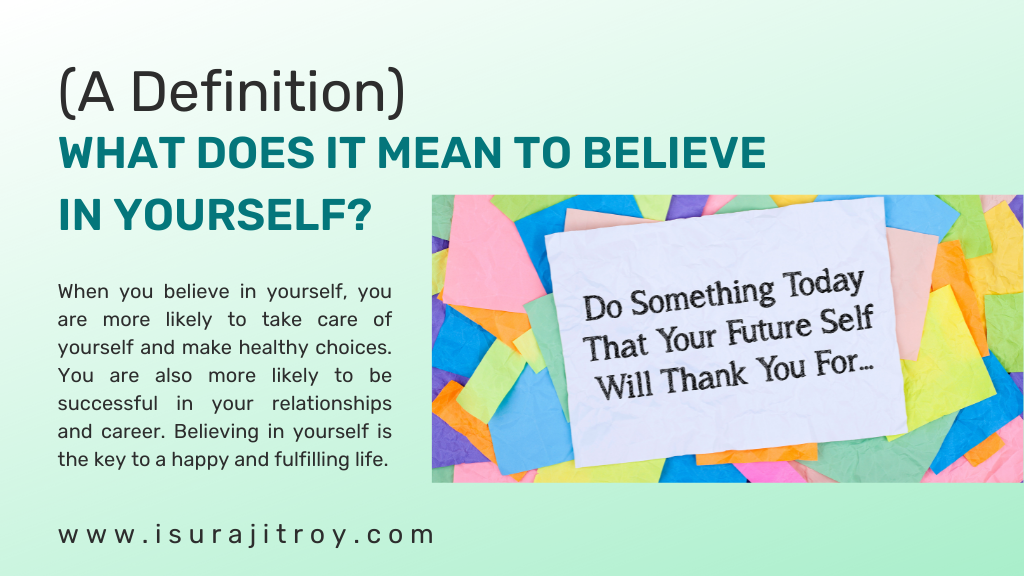
When you have self-confidence, you are sure of your value and ability. This conviction gives you the courage to work toward your objectives and aspirations despite the doubts of others. It enables you to persevere and show courage in the face of difficulties. The first step to success in everything is having confidence in oneself.
In general, successful people are those who have confidence in themselves. Because they are self-assured enough to take chances, they may set high goals and accomplish them. Additionally, they have the capacity to overcome setbacks, learning from their errors and utilising them as inspiration to perform better in the future.
It’s not about being conceited or believing you are superior to others to be confident in yourself. It is simply understanding that you are capable of big things and having faith in your own ability. It forms the basis of sound self-esteem and a constructive view on life.
Ten key benefits of believing in yourself.
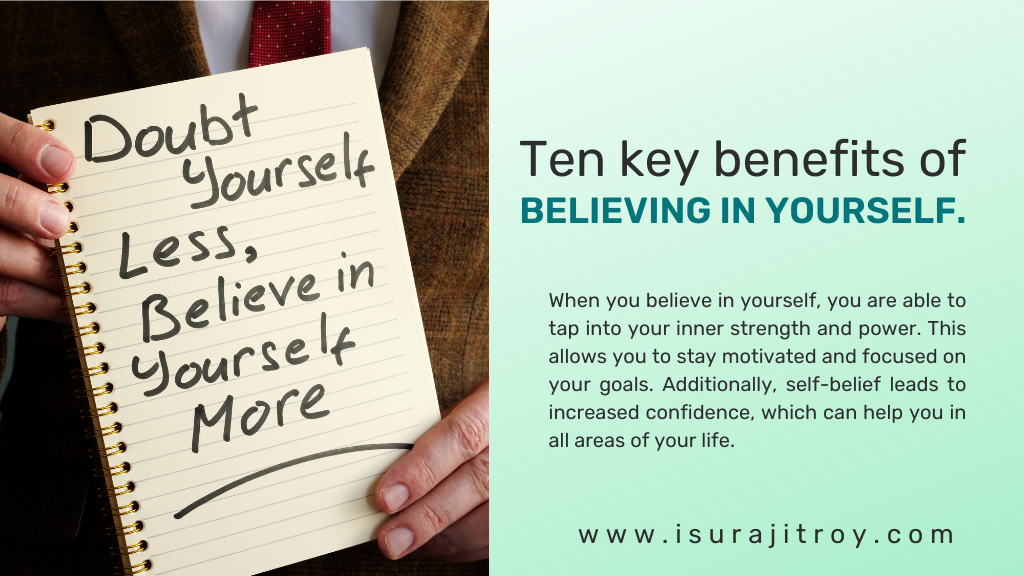
- Chances of success will increase.
- If anything goes wrong, you’ll be more resilient.
- In your skills, you’ll have greater confidence.
- Keeping to your plans will be easier for you.
- The likelihood of taking chances will increase.
- The probability of your success will increase.
- Your mood will improve.
- You’re more inclined to provide a hand to others.
- Higher chance that you will influence change.
- Higher chance that you’ll have a happy life.
Why is believing in yourself important?
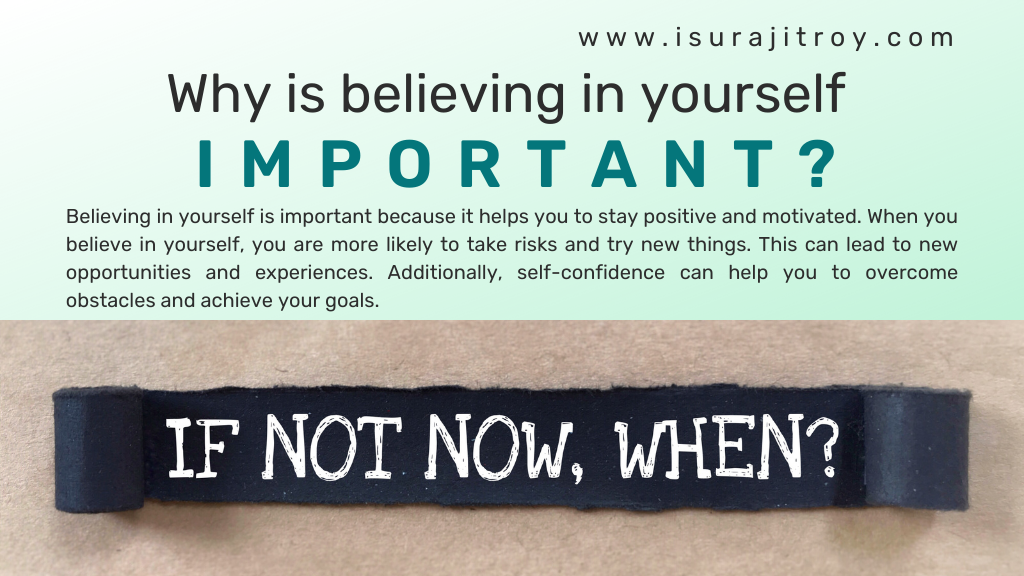
The importance of having self-confidence cannot be overstated.
First of all, if you don’t, who will believe in you? Nobody else will have trust in you if you don’t.
Second, you’ll never reach your greatest potential if you don’t believe in yourself. You won’t do something remarkable if you don’t have confidence in your skills.
Thirdly, having self-belief is the first step toward success. You must first believe you can accomplish something before you can actually do it.
Last but not least, having self-belief leads to confidence. Every aspect of life requires confidence.
How to believe in yourself?
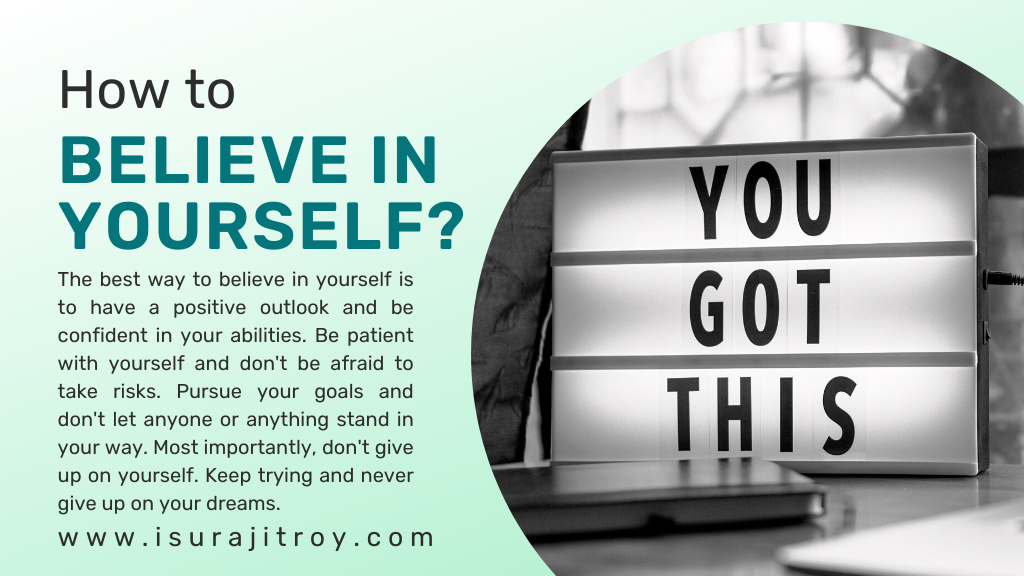
Believing in oneself is one of the most vital things you can do in life. You may access your inner strength and power to realize your aspirations and goals when you have faith in yourself. Additionally, you are more prone to take chances and follow your passions.
Here are some suggestions to help you start believing in yourself again if you find yourself doubting your skills or wondering whether you’re deserving:
1. Recognize your achievements.
We focus on our mistakes and minimize our accomplishments far too often. Stop downplaying your accomplishments and start praising them. You’ll begin to regard yourself more favorably as a result of this.
2. Be aware of your inner dialogue.
The way you communicate to yourself greatly affects how you feel about yourself. You’ll begin to believe it if you continuously criticize yourself or tell yourself that you can’t achieve anything. Start observing your self-talk and work to replace it with more uplifting phrases.
3. Assemble a positive social circle.
How you view yourself can be greatly influenced by the company you keep. It will be challenging to have confidence in yourself if you are surrounded by people who are continuously negative or who put you down. Spend time with those who will help and inspire you.
4. Look after yourself.
If you don’t look after your physical, emotional, and mental needs, it’s difficult to believe in yourself. Ensure that you are meeting your fundamental requirements and scheduling time for self-care. It’s simpler to believe in yourself when you feel good about yourself.
5. Make sensible objectives.
It will be challenging to believe in yourself if you consistently set lofty objectives. Start establishing attainable goals that you are confident you can reach. Your confidence will increase as you begin to accomplish your goals.
6. Show patience.
Self-belief is a process that takes time to develop. Don’t count on seeing results right away. Be persistent and keep at it. It will get simpler the more you work at it.
7. Look for expert assistance.
Do not be reluctant to seek out expert assistance if you are having trouble believing in yourself. You can attempt to overcome your self-doubt by identifying the source of it with the aid of a therapist.
Start putting some work into developing self-confidence, and you’ll be shocked at what you can do.
The Power of I, Me and Myself
One of the most significant things a person can accomplish in life is have believe in themselves. We have the ability and strength to accomplish our objectives when we have faith in ourselves. Additionally, we are more willing to take chances and follow our ambitions. There are some useful suggestions to assist you increase your self-confidence if you find yourself doubting your skills. Reading books that encourage self-acceptance and self-discovery is one of them.
Read More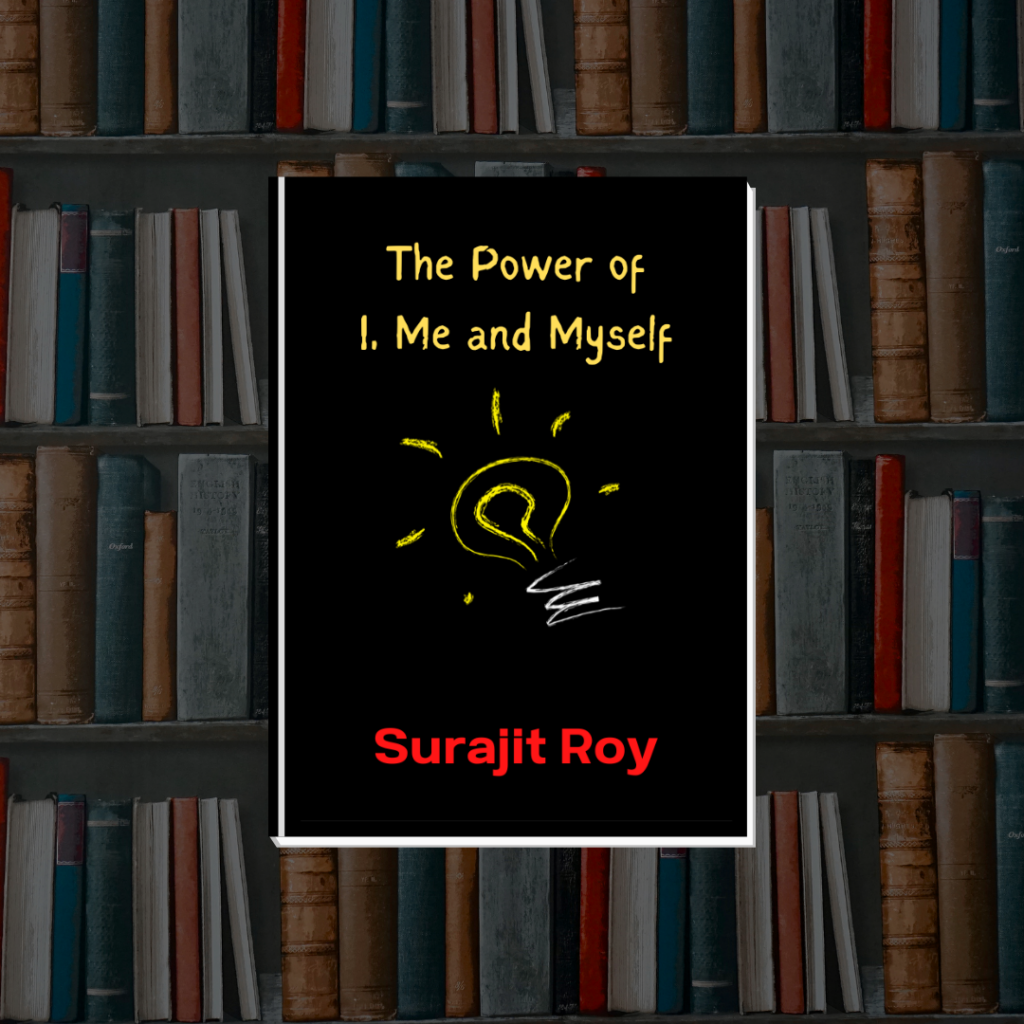
Work on your strengths (not weaknesses).
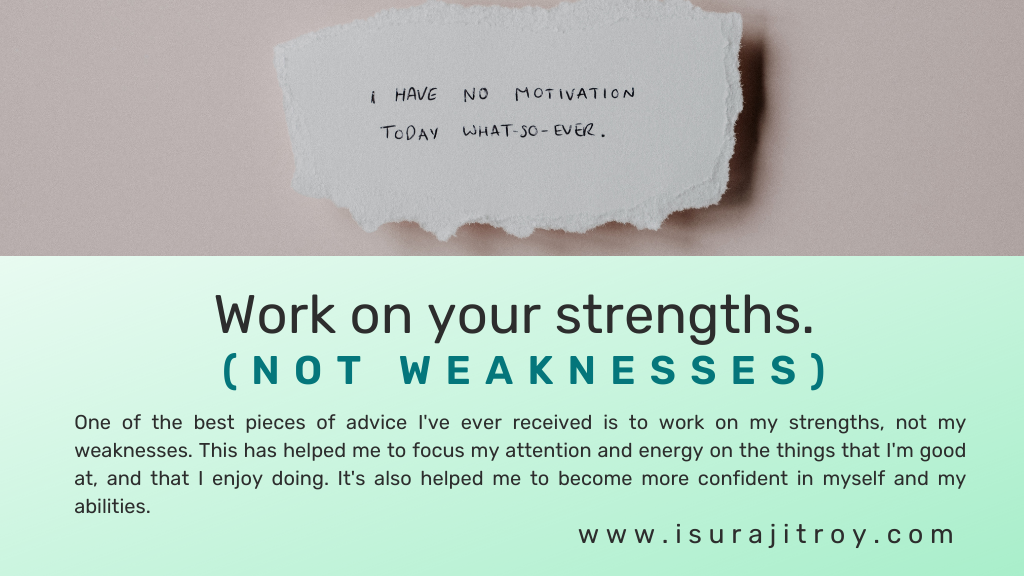
An ancient adage states that practising anything will help you get better at it. This is particularly true in terms of building strength. People tend to overemphasise their flaws and undervalue their virtues. They believe that if they can simply correct their shortcomings, they will succeed. But nothing could be farther from the truth than this. In fact, concentrating on strengthening your strengths rather than addressing your faults is considerably more crucial. This is why:
1. Your involvement will increase.
You’re more likely to be motivated and engaged when you’re working on something you’re excellent at. You’ll be more motivated to work hard and maintain your concentration. On the other side, you are more inclined to give up easily while attempting to strengthen a weakness.
2. You’ll see improved outcomes.
You must concentrate on your areas of strength if you want to experience actual benefits. Working on a skill you are strong at increases your likelihood of making genuine improvement. However, if you work to strengthen a weakness, you probably won’t notice much of a difference.
3. You’ll gain self-assurance.
Developing your strengths can help you become more confident. Your self-assurance will increase as you see yourself growing better and better. In turn, this will enable you to do even more. On the other side, if you concentrate on your shortcomings, you’ll probably feel demoralised and your confidence will drop.
4. The procedure will be enjoyable.
You’re more likely to enjoy the process when you’re working on something you’re excellent at. This is crucial because if you’re not having fun on the road, you won’t likely continue. But if you’re continually working to improve them, you’ll probably burn out and quit up rather fast.
5. You’ll achieve more success.
In the end, concentrating on your strengths rather than your faults is considerably more crucial. When you do, you have a higher chance of being involved, getting better outcomes, gaining confidence, enjoying the process, and succeeding.
Build Never Give up attitude.
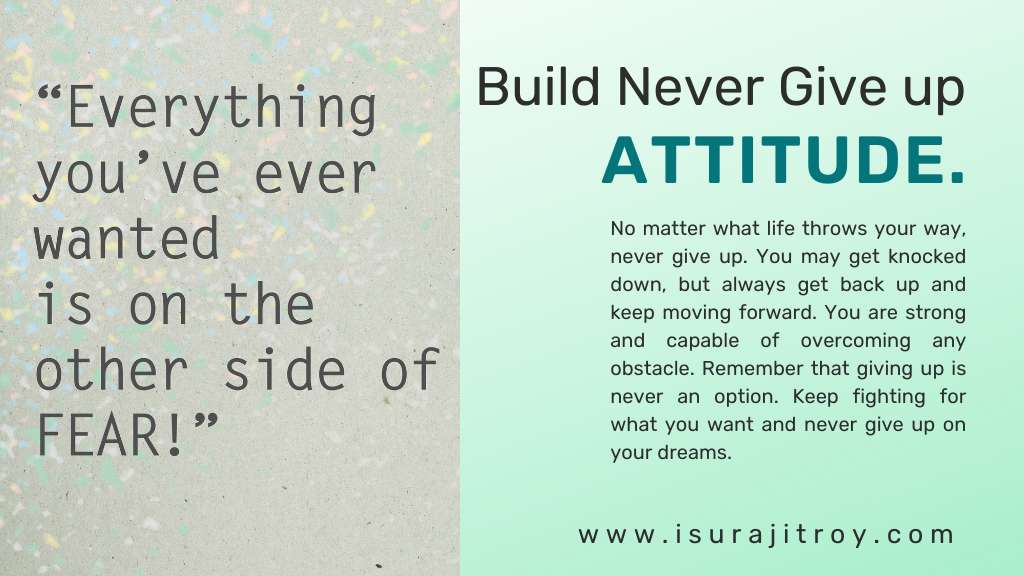
Quitting is simple. It’s the simple solution. When we are faced with a challenge, our reptile brain encourages us to act in this way. The tendency to choose the easiest road is ingrained in our brains. But high achievers don’t operate in that way. They never quit. They think in a different way. They are aware that there is simply feedback and no such thing as failure. And they make use of the criticism to develop and learn. They are aware that continuing to move forward in spite of obstacles is the only way to accomplish their objectives. They firmly believe that they can realize their dreams and that they are capable of doing so. And they are prepared to put in the effort necessary to turn their aspirations into reality. Therefore, you must adopt a never-give-up mentality if you want to be a high achiever.
Here are a few techniques to do that:
1. Create a growth mentality.
To do this, one must first adopt a growth attitude. Realizing that your intelligence and skills are not fixed entails doing this. Through perseverance and training, they can be developed. If you adopt a growth mentality, you will view failure as an opportunity to improve. You don’t mind taking chances or working hard to accomplish your objectives.
2. Establish lofty objectives.
Big goals are set by high performers. They refuse to accept mediocrity. They want to accomplish a wonderful thing. They also understand that perseverance is the key to achieving significant objectives.
3. Establish a solid work ethic.
Successful people have a strong work ethic. They have no qualms about working hard. They understand that working hard and putting in the hours is the only way to accomplish their objectives.
4. Show tenacity.
Successful people are tenacious. They don’t let disappointments and setbacks get them down. They utilise them to spur them on to continue.
5. Be tenacious.
Successful people are persistent. When things are difficult, they don’t give up. They are aware that if they persevere, success is just around the corner.
6. Trust in your abilities.
High achievers have faith in their abilities. They firmly believe that they can accomplish their objectives.
7. Stay concentrated.
Achievers maintain their focus. They don’t become distracted or demotivated. They remain committed and complete their objectives.
8. Adopt a cheerful outlook.
High achievers are optimistic people. Not half empty, but half full is how they see the glass. They think that if they put their minds to something, they can achieve anything.
9. Do something.
High performers are proactive. They create events rather than waiting for them to occur. They don’t hesitate to take chances and create their own luck.
10. Show gratitude.
High performers are appreciative of their blessings. They take their good fortune in their current location seriously and are aware of their good fortune.
You must adopt a never-give-up mentality if you want to attain high goals. To reach your goals, you must have a development mentality, make huge commitments, and be prepared to work hard. Additionally, you need to be tenacious, persistent, focused, and optimistic. Finally, you must act and express gratitude for your blessings.
Why is confidence important?

Because it enables us to feel good about ourselves and our talents, confidence is crucial. It empowers us to take chances and meet obstacles head-on. We have a better chance of succeeding in everything we set our minds to when we are confident. Being confident involves having faith in oneself and one’s talents. It’s about having pride in who we are and what we are capable of.
We are more likely to take chances when we are confident. We are more willing to venture outside of our comfort zones and attempt new things. We have a greater propensity to speak up for ourselves and defend our values. A key component of confidence is the capacity to bounce back from failures and setbacks. When we are self-assured, we don’t allow failures get us down. We get back up and continue. We keep trying until we achieve the desired outcome, learning from our mistakes as we go. Being confident is crucial since it enables us to accomplish our objectives. It inspires us to pursue our goals and surmount any challenges that lie in our way.
Why is confidence crucial then? because it is the secret to a contented and prosperous existence.
Top nine principles of how to be confident.
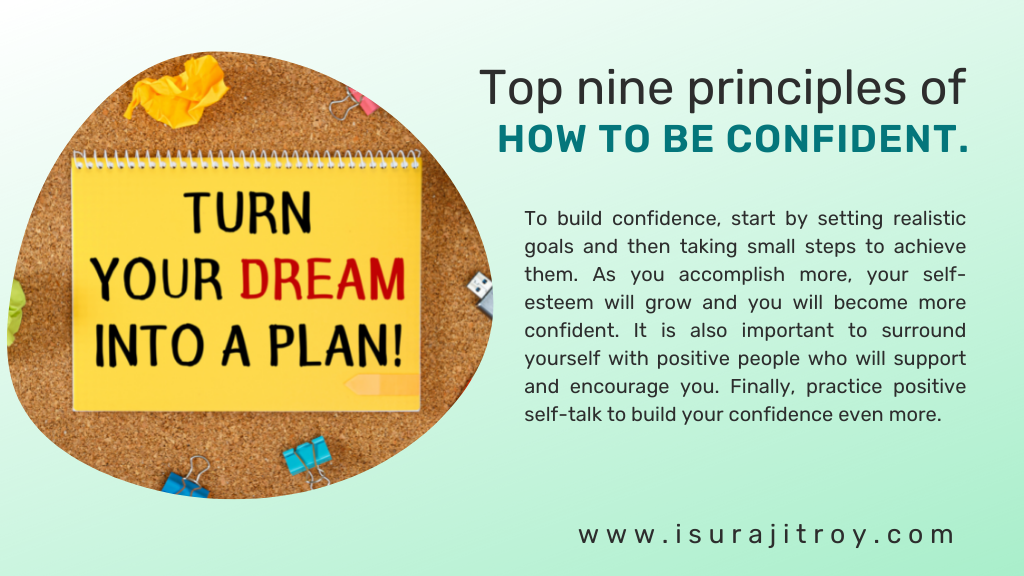
- Learn to love yourself and accept yourself as you are.
- Set attainable objectives and work toward achieving them.
- Think proactively and with optimism.
- Take care of yourself and take delight in your appearance.
- Be self-assured and advocate for oneself.
- Maintain discipline and keep your eyes on the prize.
- Take risks with confidence and courage.
- Be persistent despite obstacles and failures.
- Be in the company of upbeat individuals that encourage and believe in you.
Change your life in process.
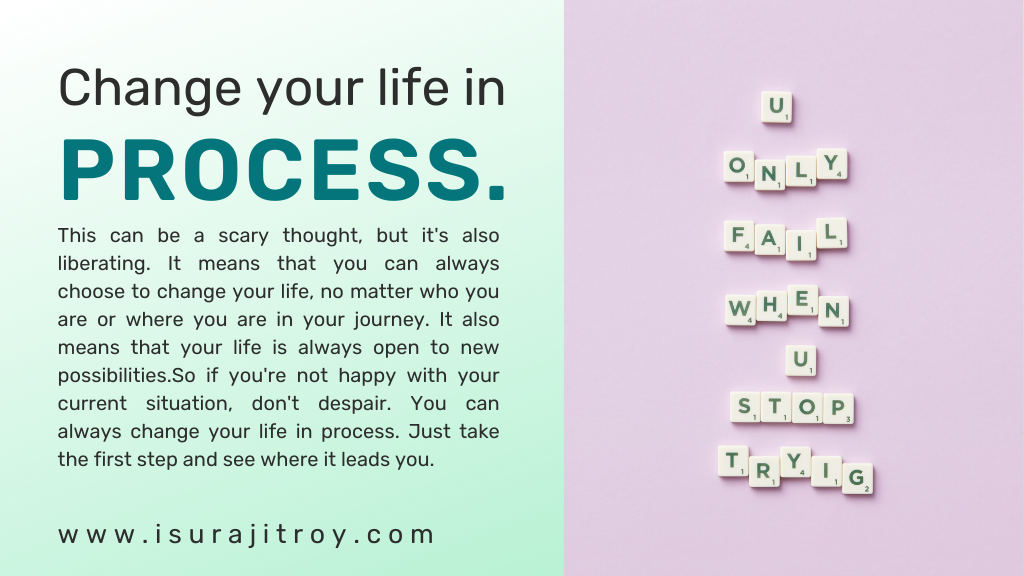
When you finally realise it’s time to change, how do you feel? Perhaps you’ve wanted to modify something for a time, but you’ve put it off. Or perhaps you’ve been living in denial, convincing yourself that everything is okay. However, you are aware that something needs to alter deep within. It’s never easy to change your life. Leaving your comfort zone and venturing into the unknown might be frightening. However, altering one’s behavior can also be immensely rewarding. It might be the starting point for leading a happier, healthier, and more rewarding life.
Here are a few things you can do to get started if you’re prepared to transform your life:
1. Determine the changes you wish to make.
Finding out what you want to alter is the first step in making a change. What in your life isn’t functioning? What do you want to change? What would bring you joy? Think on the things you want to alter for a while. You can begin developing a plan if you have a clear understanding of what you want to alter.
2. Establish a plan.
It’s easier to say than to do to make changes in your life. It necessitates planning, work, and time. It’s time to create a plan once you’ve decided what you want to alter. Consider the actions you must do to effect the change. What has to be changed on your part? What must you quit doing? What must you begin doing? Making a plan will make the shift easier to handle and keep you on track.
3. Make a target.
A goal is a terrific approach to maintain motivation and ensure that you actually carry out the change. You have something to work toward when you have a goal. Consider your objectives, then choose a target that is doable. Make sure your objective is clear, quantifiable, reachable, pertinent, and time-limited.
4. Do something.
When you have a goal in mind, it is time to act. The actual work starts at this point. Start implementing the life improvements you desire to see. Although difficult, the effort will be worthwhile. Always be patient and remember to take things one step at a time. Transitions take time.
5. Assess your development.
It’s crucial to assess your development as you make the modifications. This will ensure that you stay on course and are making the desired improvement. Take stock of your progress. Are you making the advancements you desire to? Do you encounter difficulties in some areas?
You can ensure that you make the change by assessing your progress and making the required modifications. It’s never simple to change your life, but it’s always worthwhile. Use these suggestions to get started if you’re prepared to make a change.
Questions to ask yourself.
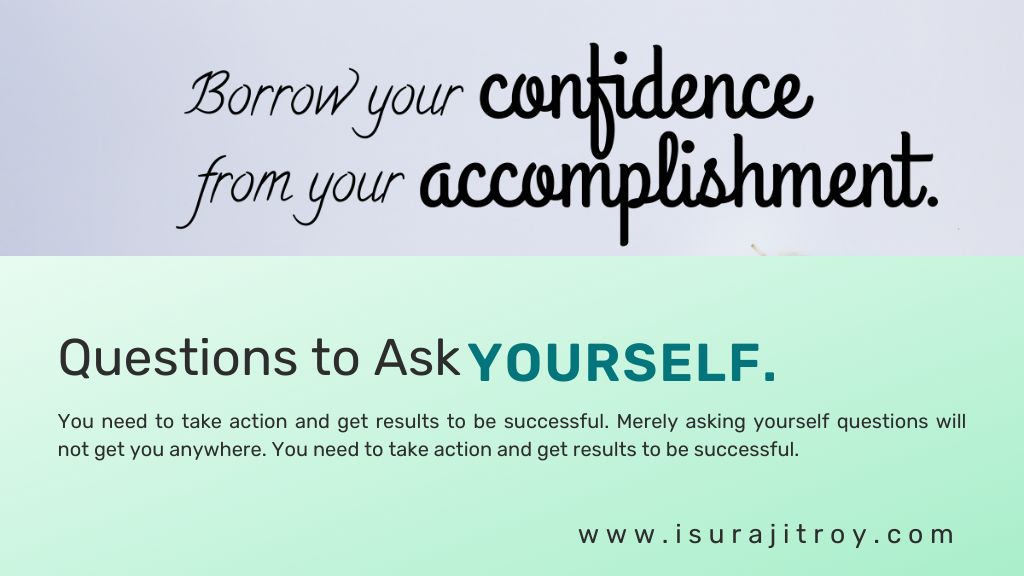
- What are my goals?
- What should come first for me?
- How can I accomplish my objectives?
- What are some possible roadblocks in the way of my objectives?
- How can I get through this difficulty?
- Which tools will help me accomplish my objectives?
- What are the benefits and drawbacks of attaining my objectives?
- What will it cost and what will it gain for me to achieve my goals?
- In what ways will attaining my objectives affect both my life and the lives of people around me?
- What are the benefits and hazards of not reaching my objectives?
Conclusion.
Although it may seem challenging, having self-confidence is attainable. You must be self-assured in your skills and motivated to put in a lot of effort if you want to accomplish your goals. When things get tough, it might be difficult to keep motivated and focused, but if you believe in yourself, you can get through any obstacle. It’s critical to keep in mind that having confidence involves more than simply feeling good; it also entails having the guts to take chances and make challenging choices. Anything is possible if you have faith in your own abilities.

